- Details
- Category: Senator Sara Feigenholtz News
 SPRINGFIELD – People seeking reproductive and gender-affirming health care in Illinois can now count on additional privacy protections, thanks to legislation spearheaded by State Senator Sara Feigenholtz that was signed by Governor JB Pritzker on Friday.
SPRINGFIELD – People seeking reproductive and gender-affirming health care in Illinois can now count on additional privacy protections, thanks to legislation spearheaded by State Senator Sara Feigenholtz that was signed by Governor JB Pritzker on Friday.
“In Illinois, we will not let this technology be abused and weaponized as a tool to hunt people down based on a lawful decision that took place during an appointment with their doctor,” said Feigenholtz (D-Chicago). “We have a long history of welcoming those seeking refuge in our state – and this law will help protect that important aspect of our history.”
Read more: Feigenholtz measure creating new license plate camera privacy protections signed into law
- Details
- Category: Senator Laura Fine News
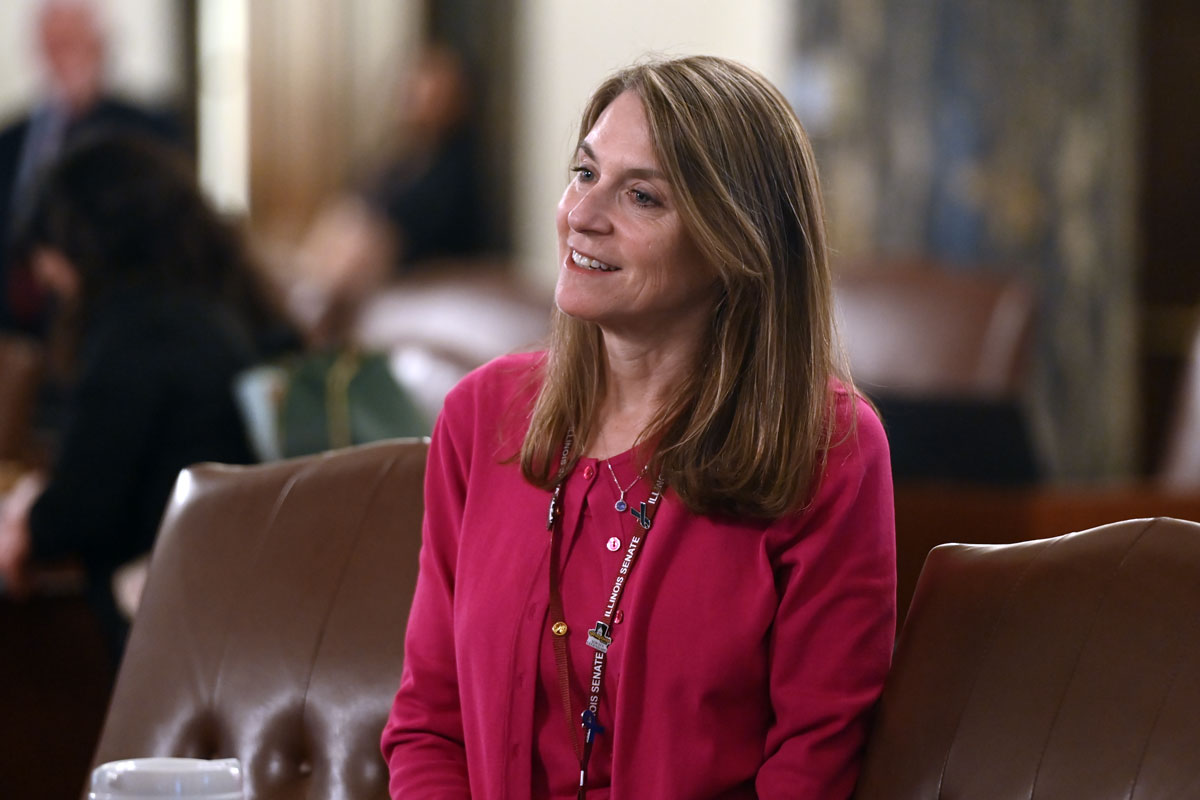 SPRINGFIELD – Illinoisans will soon have annual mental health wellness visits covered under their insurance at no additional cost, thanks to a new law sponsored by State Senator Laura Fine.
SPRINGFIELD – Illinoisans will soon have annual mental health wellness visits covered under their insurance at no additional cost, thanks to a new law sponsored by State Senator Laura Fine.
“Much like annual checkups for your physical health, annual mental health visits allow specialists to identify or address underlying mental health concerns or new symptoms that may have come up in the past year,” said Fine (D-Glenview). “Offering these annual visits at no additional cost will encourage people to treat their mental health as seriously as their physical health, and seek this form of health care that everyone can benefit from.”
Read more: Fine’s law requires insurance to cover annual mental health visits
- Details
- Category: Senator Michael E. Hastings News
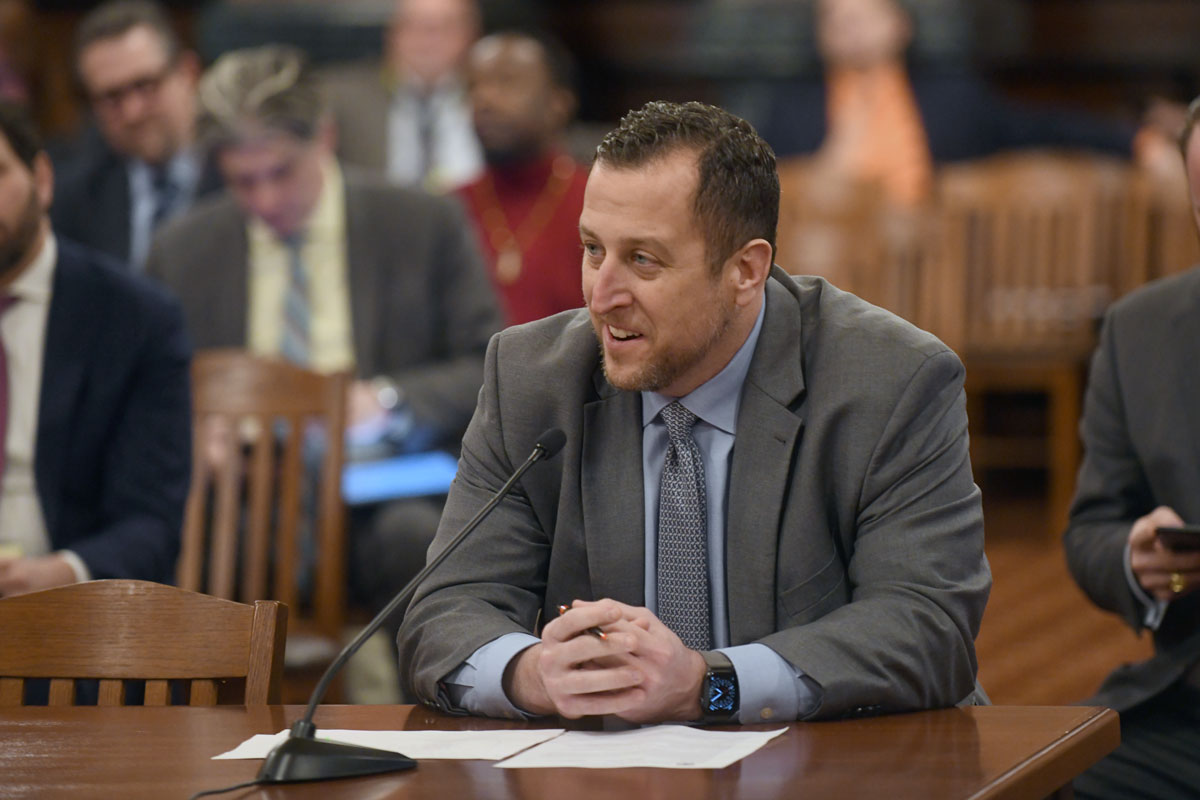 SPRINGFIELD – The long awaited renovation to the former Tinley Park Mental Health Center will soon be underway thanks to the advocacy of State Senator Michael E. Hastings.
SPRINGFIELD – The long awaited renovation to the former Tinley Park Mental Health Center will soon be underway thanks to the advocacy of State Senator Michael E. Hastings.
“Transferring the Tinley Park Mental Health Center to the Tinley Park – Park District was one of the best decisions the state made this year,” said Hastings (D-Frankfort). “The Park District has a track record of working together with everyone in our community and the south suburban region. More importantly, they are capable and have a plan ready when the property is ultimately transferred to them.”
This new law will allow the Tinley Park – Park District to renovate an abandoned property into a first class recreation destination to include a sports park and recreational space for residents in the community to use.
Read more: Hastings’ new law will jump start renovation of Tinley Park Mental Health Center
- Details
- Category: Senator Kimberly A. Lightford News
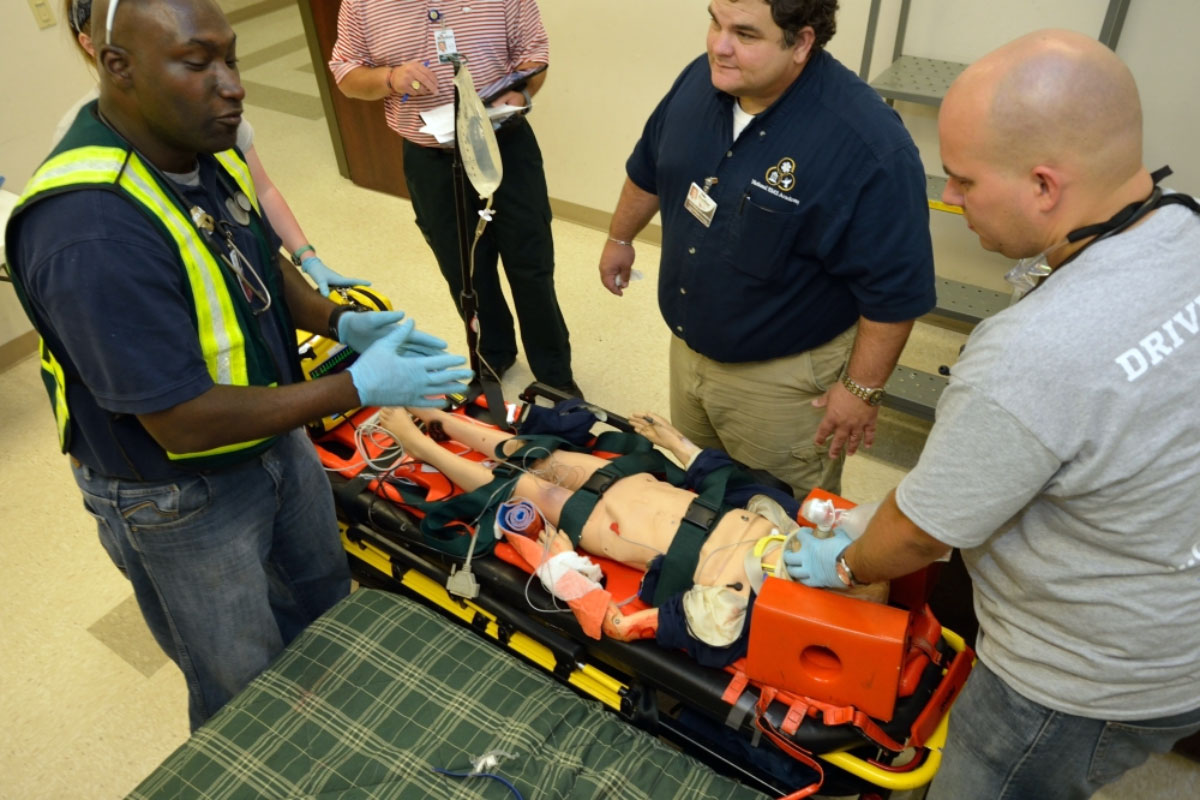 SPRINGFIELD – Recognizing staff shortages in the EMS workforce, Senate Majority Leader Kimberly A. Lightford led a new law to attract and retain EMS workers.
SPRINGFIELD – Recognizing staff shortages in the EMS workforce, Senate Majority Leader Kimberly A. Lightford led a new law to attract and retain EMS workers.
“The pandemic further exacerbated how vital the EMS professionals are,” said Lightford (D-Maywood). “We need to expand the workforce by prioritizing recruitment and retention of highly-skilled workers.”
Senate Bill 761 works to tackle the emergency medical field workforce shortage head on by allowing more flexibility for EMS directors to use alternative staffing models and creating a task force to bring greater training, recruitment and retention to the field.
Currently, there is a shortage of EMS instructors in particular. Lightford’s law will allow people interested in becoming an instructor to bypass taking an IDPH-approved course if they have sufficient experience to become a director. This will help recruit individuals from other states by eliminating unnecessary hoops when moving to Illinois.
“There are plenty of well-trained people who are ready and willing to step up to lead,” said Lightford. “Let’s put that opportunity in reach. Helping EMS workers helps our community.”
Senate Bill 761 was signed into law Friday.
- Details
- Category: Senator Linda Holmes News
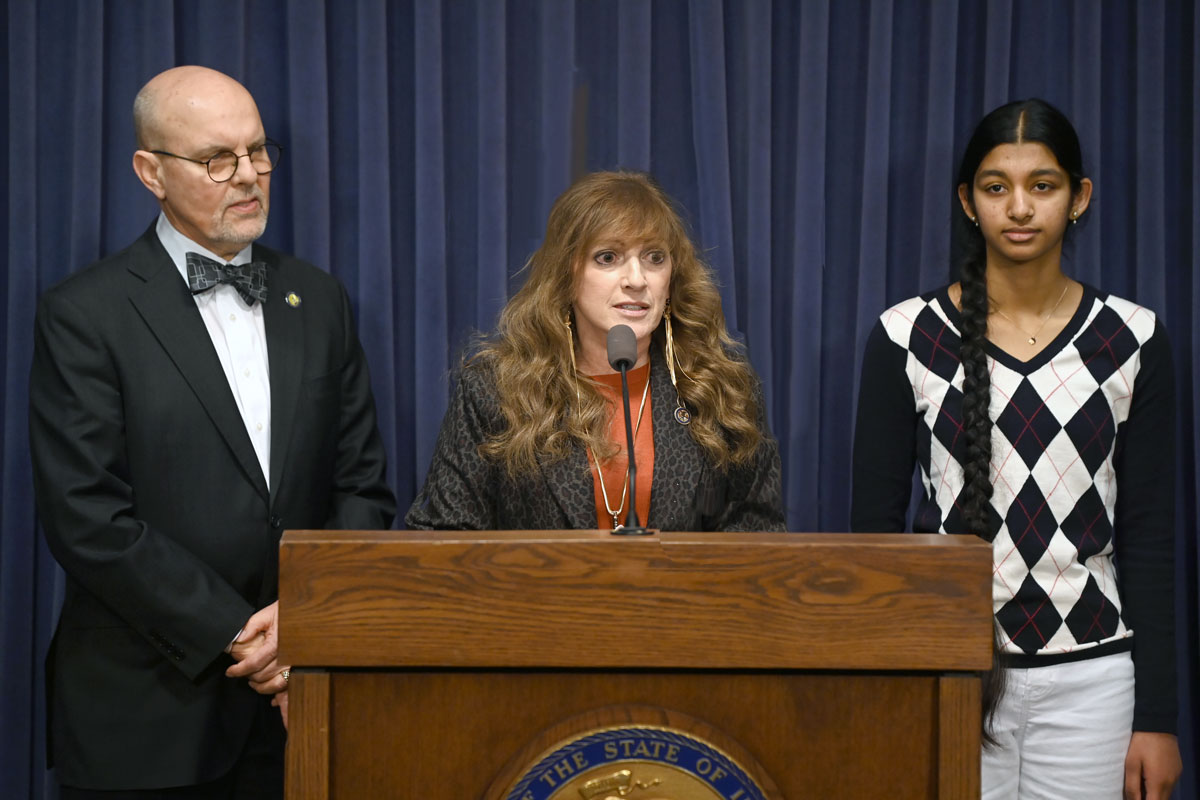 Young vloggers gain protections child actors achieved over past 80 years
Young vloggers gain protections child actors achieved over past 80 years
SPRINGFIELD — Social media content has surged in the past decade, with many posts featuring influencers who promote themselves and commercial products on behalf of advertisers. Although a growing portion of that content features children, there were no laws protecting minors’ rights. Thanks to legislation led by State Senators Linda Holmes and Dave Koehler, Illinois is the first state to protect child influencers’ earnings.
“Our role as legislators is to ensure our labor laws reflect advances in technology and the economy, including the work of children and teens,” said Holmes (D-Aurora). “In this digital age, parents should not profit off their children’s work, as was established for film and television in the years before YouTube or TikTok existed.”
According to CBS News, young influencers — also known as “kidfluencers” — with one million followers can earn $10,000 or more per sponsored post. Because of the age restrictions on online platforms, the content is not created in the child's name but rather the parent or guardian who runs the account. While traditional child actors in Illinois have the Child Labor Law to safeguard their earnings, there is nothing in place for kidfluencers.
Senate Bill 1782 amends the Child Labor Law to cover minors under 16 featured in vlogs or other online content. The measure requires parents to set aside a portion of the revenue generated by their online content into a trust the child can access once they turn 18. The legislation was inspired by Shreya Nallamothu, a high school student from Koehler’s district who brought her concerns to Holmes and Koehler about how child influencers’ compensation could fall victim to a parent or guardian taking the assets.
“I’m grateful my friend Dave Koehler and I teamed up on this measure to ensure young people aren’t exploited in any employment scenario,” said Holmes. “Knowing there are teens like Shreya taking interest and action in public policy to safeguard kids gives me hope for the future.”
Senate Bill 1782 was signed into law today and will take effect July 1, 2024.
- Details
- Category: Senator Robert Martwick News
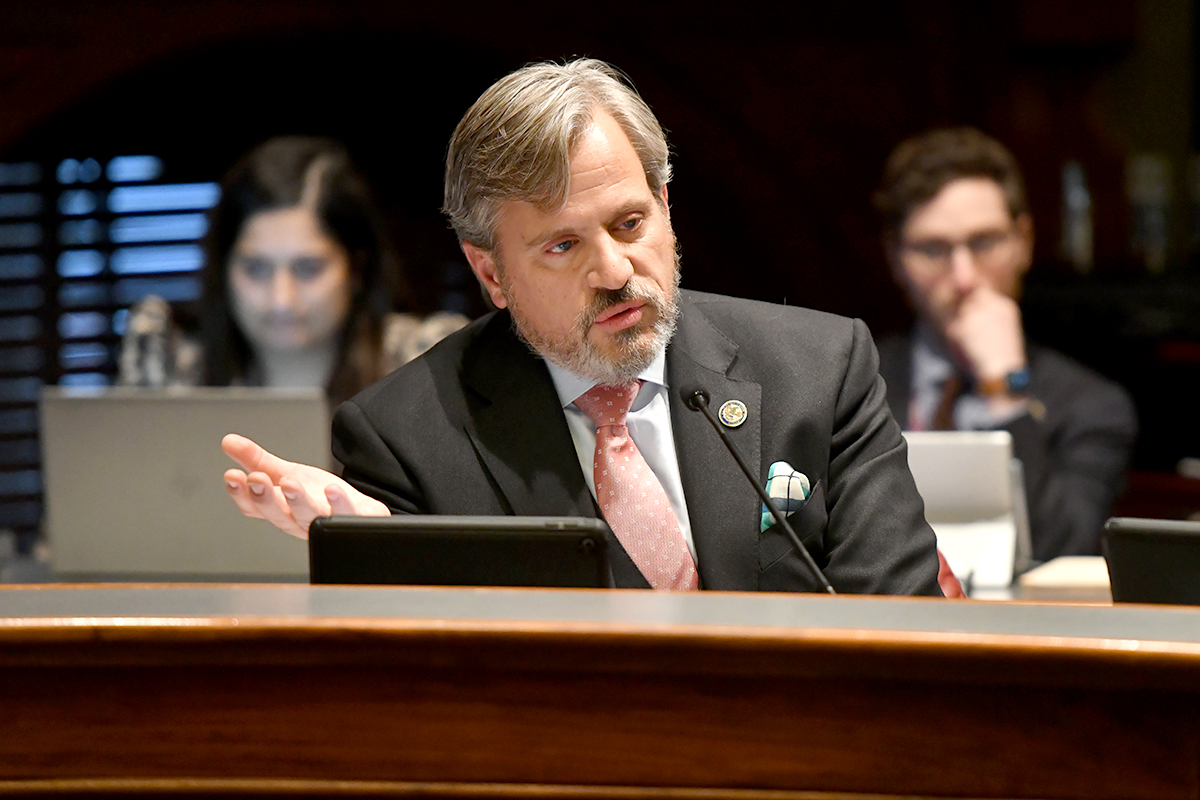
SPRINGFIELD — Thanks to a new law championed by State Senator Robert Martwick, rideshare companies will be subject to the same standard of care as all other transportation companies.
“As rideshare companies become an integral part of modern transportation, we must demand the same high standards of care as we do for traditional carriers,” said Martwick (D-Chicago). “Holding companies accountable for the actions of their employees is about safeguarding every passenger who places their trust in these services.”
Under the new law, rideshare companies like Uber and Lyft are subject to the common carrier doctrine, which holds transportation companies to the highest standard of care for their passengers. This allows the state to hold the company liable if an employee causes harm to a passenger through intentional means such as assault, or if a driver is intoxicated and causes an accident.
Read more: Martwick measure to hold rideshare companies accountable signed into law
- Details
- Category: Senator Dave Koehler News
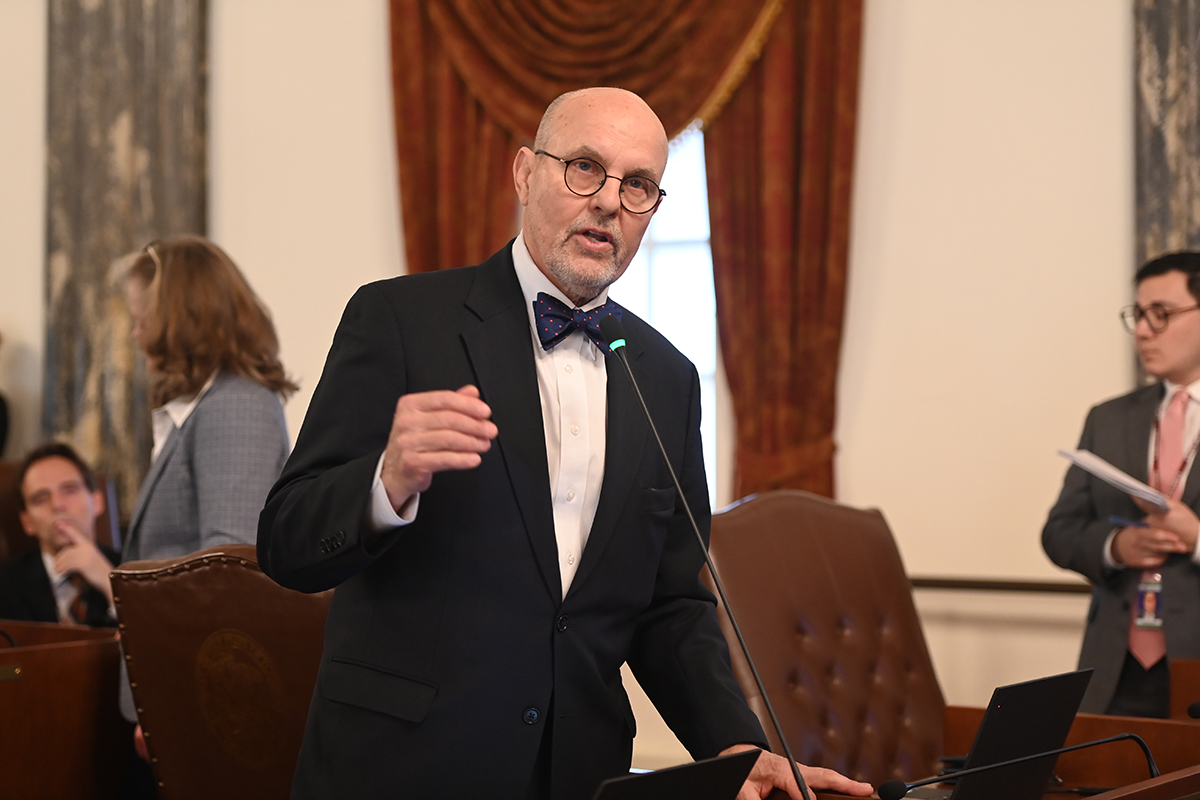
SPRINGFIELD – With the rise of social media influencing, all someone needs to reach fame now is a cell phone. While traditional child actors are protected by the Child Labor Law, there has been nothing on the books for young social media influencers until now, thanks to State Senator Dave Koehler.
“The rise of social media has given children new opportunities to earn a profit,” said Koehler (D-Peoria). “Many parents have taken this opportunity to pocket the money, while making their children continue to work in these digital environments.”
Under Senate Bill 1782, minors under the age of 16 featured in vlogs or other online content are covered under the Child Labor Law. The measure calls for the child – also known as a “kidfluencer”— to be accurately compensated.
The idea for the legislation came from Shreya Nallamothu, a 15-year-old high school student in Koehler’s district. Shreya brought her proposal to Koehler with concerns that money made by child influencers is not protected and that too many young people will fall victim to a parent or guardian taking the assets for their own use.
Read more: Koehler law ensures child vloggers are accurately compensated
- Details
- Category: Senator Mike Halpin News
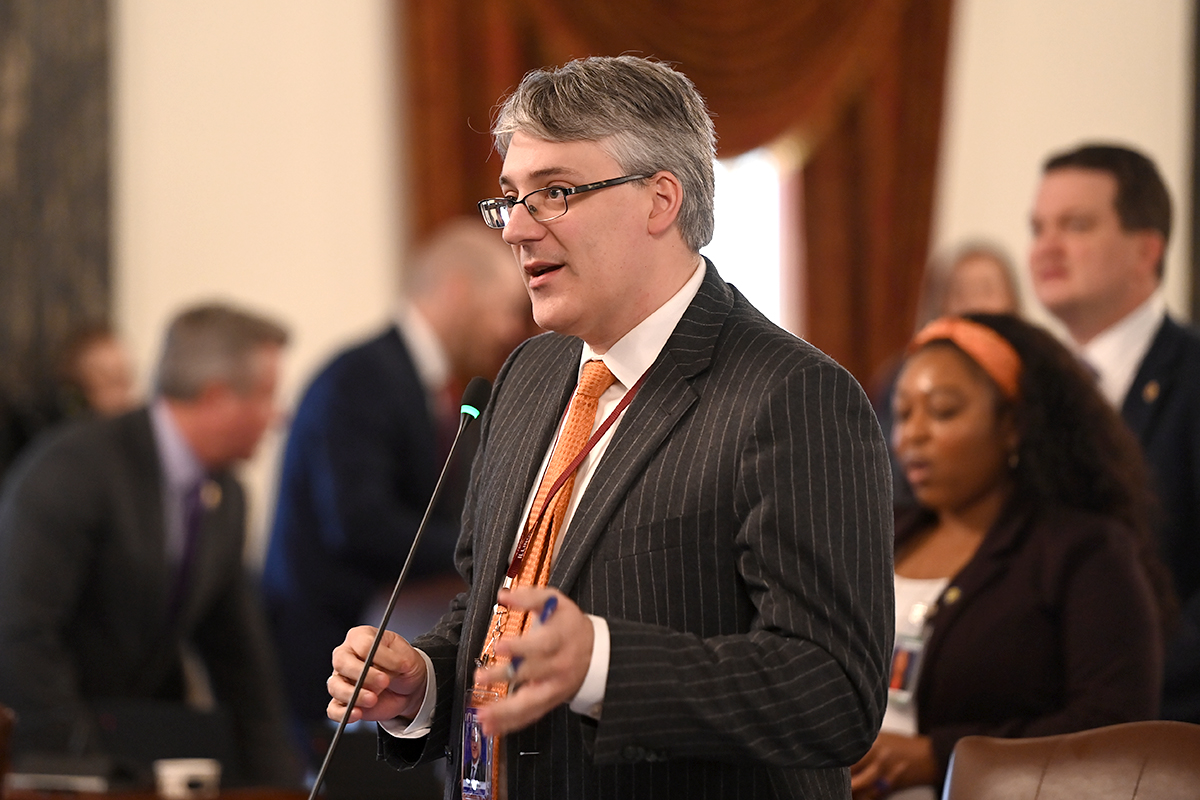
SPRINGFIELD – A new law spearheaded by State Senator Mike Halpin marks a significant milestone in the expansion of the AIM HIGH Grant Pilot Program.
“This will make it easier for students who live in Illinois to go to college in Illinois,” said Halpin (D-Rock Island). “We all want to keep more students in-state for college, and this new law will actually do something to help.”
Beginning with the 2019-20 academic year, the Aspirational Institutional Match Helping Illinois Grow Higher Education (AIM HIGH) program has provided merit-based, means-tested financial aid to first-time, full-time undergraduate students and transfer students who are Illinois residents attending any of the 12 Illinois public four-year universities. AIM HIGH-participating universities are required to provide matching funding for institutional awards for students who meet certain eligibility requirements, as well as those established by each individual university.
Senator Halpin’s legislation implements several changes, including making the AIM HIGH Grant Pilot Program permanent, increasing transparency in the program to allow more students to take advantage, increasing access for part-time students and making changes to the matching requirements for the public universities.
Read more: New law will give more students access to Illinois universities
More Articles …
- Villanueva champions equitable restroom law
- Comprehensive plan to improve services for children with behavioral and mental health needs signed into law, thanks to Feigenholtz
- Harmon applauds Illinois Supreme Court ruling upholding state assault weapons ban
- Hunter promotes community wellness at annual health fair
Page 167 of 769













 © 2026 Illinois Senate Democratic Caucus
© 2026 Illinois Senate Democratic Caucus